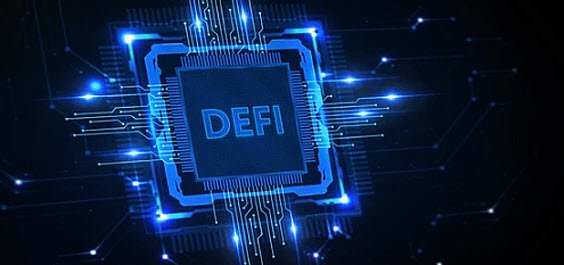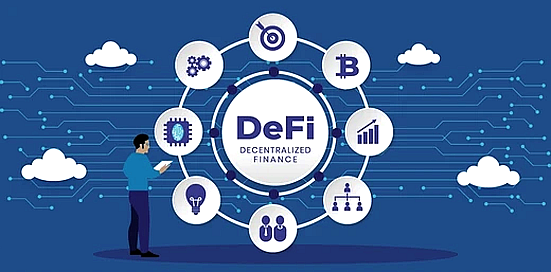Accredited InvestorsAltcoinAnatoli UnitskyAnti-Money Laundering (AML) In CryptoAPIArbitrageArtCoin TokenArticle DirectoryASICAuction Terminology GlossaryBasics of Stock Market InvestingBear MarketBest Crypto Payment Provider In the WorldBitcoinBlockchainBlockchain ConfirmationBlockchain Consensus MechanismBlockchain ForkBlockchain GlossaryBored Ape Yacht ClubBuild a Business That OutperformsBull MarketBuying SkyWay SharesByzantine Fault Tolerance (BFT) ExplainedCasascius CoinCentral Bank Digital Currency (CBDC)Centralized Crypto ExchangeCoinCoinsetCold WalletCollateralCommodity Futures Trading Commission (CFTC)Cross-Chain TechnologyCRUCrypto ExchangeCrypto GlossaryCrypto JokesCrypto Terms to KnowCrypto TickerCryptocurrencyCryptographyCryptojackingCryptounit BlockchainCryptounit GlossaryCryptounit ProgramdApp (Decentralized Application)Dead CoinDecentralized Exchange (DEX)Decentralized Finance (DeFi)Difference Between Bitcoin and EthereumDifferent Ways of Investing MoneyDigital CurrencyDistributed LedgerDo Your Own Research (DYOR)Dollar Cost Averaging (DCA)Dow Jones Industrial Average (DJIA)EncryptionERC-20ERC-721EthereumEvoScentFear Of Missing Out (FOMO)Fear, Uncertainty and Doubt (FUD)Fiat MoneyFNT Fintech CompanyGenesis BlockGlobal Unit PayGlossary of Banking TermsGlossary of Business TermsGlossary of Financial TermsHalvingHODLHot WalletHow Do I Start InvestingHow Rich is Satoshi Nakamoto?How to Create a BlockchainHow to Find Private InvestorsHow to Get Into FintechHow to Program Smart ContractsI Am Thrilled to Be a Part of This Global ProjectInitial Coin Offering (ICO)Initial Public Offering (IPO)Initial Token Offering (ITO)Innovation Basalt TechnologyInnovative Transportation TechnologiesInternational Bank Account Number (IBAN)Investing in Gold Mining StocksInvesting in Gold MiningJagerJoy of Missing Out (JOMO)Know Your Customer (KYC)LedgerLiquidity in CryptocurrencyMaker and Taker Fees in Crypto TradingMarket Capitalization (Market Cap)Meme CoinMetal Credit CardMetaMaskMillenials Now Have Access to Generational WealthMy Best Investment EverNew Digital EvolutionNFT GlossaryOff-Chain TransactionsOn-Chain TransactionsOpen Edition NFTPeer-to-Peer (P2P)Personal Loan GlossaryProbably the Best STO on the MarketProof of Stake (PoS)Real Estate Glossary of TermsReal Estate Investing GlossaryRebase TokenSecurities and Exchange Commission (SEC)Security Token ExchangesSecurity Token Offering (STO)Soulbound Decentralized Identities for Security TokensSoulbound ID Launch by Stobox Proves a SuccessSoulbound TokensStoboxStock Market GlossaryTestimonialsTether Platform and Token (USDT)UnitEx ExchangeUnitsky String TechnologiesUNTBUSDUValidatorWe Started Investing When We Were 25What are Blue Chip NFT?What are Blue Chip Stocks?What are Crypto Assets?What are Crypto Smart Contracts?What are CryptoPunks NFT?What are Digital Assets?What are Digital Collectibles?What are Gas Fees?What are Gas Wars?What are Hashmasks?What are Non Fungible Tokens?What are Non-Sufficient Funds (NSF)?What are Soulbound Tokens (SBT)?What are Stablecoins in Crypto?What are Transactions Per Second (TPS)?What are Utility NFTs?What are Utility Tokens?What Does Burning Crypto Mean?What Does Diamond Hands Mean?What Does Paper Hands Mean?What Does To The Moon Mean?What Does WAGMI Mean?What Happened to Satoshi Nakamoto?What is a 51% Attack?What is a Baby Boomer?What is a Backlink?What is a Banner?What is a Barcode?What is a Bid-Ask Spread in Crypto?What is a Block in Blockchain?What is a Block Reward?What is a Blockchain Address?What is a Blockchain Node?What is a Blockchain Oracle?What is a Blog?What is a Bond?What is a Bot?What is a Broker?What is a Business Accelerator?What is a Cash Cow?What is a Commercial Bank?What is a Commodity?What is a Con?What is a Credit?What is a Credit Limit?What is a Credit Rating?What is a Crypto Airdrop?What is a Crypto Bridge?What is a Crypto Scam?What is a Crypto Token?What is a Crypto Wallet?What is a Crypto Whale?What is a Crypto Winter?What is a Cryptocurrency Public Ledger?What is a Cryptocurrency Roadmap?What is a DAO?What is a Dark Pool?What is a Day Trader?What is a Dead Cat Bounce?What is a Default?What is a Derivative?What is a Digital Credit Card?What is a Fiscal Quarter?What is a Fungible Token?What is a Governance Token?What is a Grace Period?What is a Hard Fork?What is a Hot Wallet?What is a Hybrid Blockchain?What is a Hybrid PoW/PoS?What is a Joint Account?What is a Market Cap?What is a Merkle Tree in Blockchain?What is a Mining Farm?What is a Nonce? What is a PFP NFT?What is a POS System?What is a Prepaid Card?What is a Private Blockchain?What is a Private Key?What is a Public Blockchain?What is a Public Key?What is a Reserve Currency?What is a Ring Signature?What is a Routing Number?What is a Rug Pull in Crypto?What is a Safe Deposit Box?What is a Satoshi?What is a Security Token?What is a Seed Phrase?What is a Shitcoin?What is a Sidechain?What is a Soft Fork?What is a Spot Market?What is a State Bank?What is a SWIFT Code?What is a Tax Identification Number (TIN)?What is a Time Deposit?What is a Transaction Account?What is a Variable Interest Rate?What is a Virtual Assistant (VA)?What is a Virtual Card?What is a Virtual Currency?What is a Visa Card?What is a Whitelist in Crypto?What is a Whitepaper?What is Accounts Payable (AP)?What is AMA in Crypto?What is Amortization?What is an Accrual?What is an ACH Transfer?What is an Actuary?What is an Addendum?What is an Algorithm?What is an Angel Investor?What is an Annuity?What is an Asset?What is an ATM?What is an Atomic Swap?What is an Audit?What is an Avatar?What is an EIN?What is an Embargo?What is an Entrepreneur?What is an IDO (Initial Dex Offering)?What is an Interest Rate?What is an Internet cookie?What is an Investment Bank?What is an NFT Drop?What is an NFT Floor Price?What is an Ommer Block?What is an Orphan Block?What is an Outstanding Check?What is an Overdraft?What is Artificial Intelligence (AI)?What is B2B (Business-to-Business)?What is B2G (Business-to-Government)?What is Bartering?What is Bitcoin Dominance?What is Bitcoin Pizza Day?What is Blockchain Immutability?What is Blockchain Used For?What is BRICS?What is Business-to-Consumer (B2C)?What is C2C (Customer to Customer)?What is Capitalism?What is Catfishing?What is CFD Trading?What is Check Kiting?What is Cloud Mining?What is Communism?What is Content Marketing?What is Decentralization in Blockchain?What is DeFi in Crypto?What is Delisting?What is Depreciation?What is Digital Marketing?What is Diversification?What is Double Spending?What is Dumb Money?What is Dumping?What is Earnings Per Share (EPS)?What is Economics?What is Email Marketing?What is Equity?What is Etherscan?What is Fintech?What is Foreign currency?What is Forex?What is Fundamental Analysis (FA)?What is GameFi?What is Generative Art NFT?What is Gwei?What is Hard Currency?What is Hash Rate?What is Hashing in Blockchain?What is Inflation?What is Initial Game Offering (IGO)?What is Interest?What is Interest Income?What is Mainnet?What is Mastercard?What is Metaverse in Crypto?What is Mining in Cryptocurrency?What is Minting NFT?What is Mobile Banking?What is Money Laundering?What is NFT Alpha?What is NFT Metadata?What is NFT Rarity?What is NGMI Meaning?What is Nominal Interest Rate?What is Online Banking?What is Open-End Credit?What is OpenSea NFT Marketplace?What is Personal Identification Number (PIN)?What is Play-to-Earn?What is Polygon?What is Proof of Authority (PoA)?What is Proof of Work (PoW)?What is Public Key Cryptography?What is Pump and Dump?What is Quantum Computing?What is Refinancing?What is Retail Banking?What is Ripple?What is Sharding?What is Slippage in Crypto?What is Smart Money?What is Solvency?What is Soulbound ID?What is SSL?What is Staking in Cryptocurrency?What is Technical Analysis (TA)?What is Testnet?What is the Ask Price?What is the Better Business Bureau (BBB)?What is the Bid Price?What is the Dark Web?What is the InterPlanetary File System (IPFS)?What is the Gold Standard?What is the Lightning Network?What is the Prime Rate?What is the Sandbox?What is the Secondary Market?What is the World Bank?What is Tier 1 Capital?What is Tokenomics?What is TRC-20?What is Universal Banking?What is Unspent Transaction Output (UTXO)?What is Usury?What is Volatility in Crypto?What is Wash Trading?What is Web3?What is Whisper?What is XRP?What is Zero-Knowledge Proof (ZKP)?Who is Beeple?Who is Satoshi Nakamoto?Who is Vitalik Buterin?Why Tokenization is a Safe HavenWhy You Should Try Your Hand at Trading
Decentralized Finance (DeFi)
- Home
- Cryptounit Glossary
- Decentralized Finance
Decentralized Finance, DeFi for short, is a new means of providing financial services to the public, generally without the need of a middleman.

What is Decentralized Finance (DeFi)?
Consider classic financial services such as money exchange and transfers, savings and loans, but they are now online and digital, worldwide and readily transferable.
DeFi is a movement that encourages the use of decentralized networks and open source software to produce various sorts of financial services and products. The concept is to create and operate financial dApps on top of a transparent and trustless architecture, such as permissionless blockchains and other peer-to-peer protocols.
Currently, the three most important functionalities of Decentralized Finance are:
- Developing financial banking services (e.g., issuance of stablecoins)
- Introducing innovative financial tools such as decentralized crypto exchanges, tokenization platforms, derivatives, and prediction markets.
- Platforms for peer-to-peer or pooled lending and borrowing
There are several forms of DeFi services within these three categories. Funding protocols, software development tools, subscription payment methods, and data analysis applications are a few examples of products and use cases. KYC, AML, and other identity management services may also be provided through DeFi dApps.
Decentralized Finance provides some advantages that regular financial markets do not have:
- Immutability - Once verified and uploaded to the blockchain, blockchain records are safe, permanent, and cannot be deleted or altered.
- Transparency - Blockchains are public ledgers that exchange information across a decentralized network, allowing for more transparency of data and who interacts with it.
- Being Permissionless - Permissionless blockchains are accessible to everyone with an Internet connection and a crypto wallet. There is no need for banks. There are no intermediaries to obstruct transactions.
- Smart contracts - These may be made to function automatically, in a trusted manner, and anonymously.
- Custody - DeFi product and service users may take custody of their assets without relying on a third party.
- Open-source software and cooperation foster trust and higher-quality code, resulting in a better user experience.
Deploying a financial application or product becomes significantly less complicated and safe with the usage of smart contracts and distributed systems. Many dApps, for example, are being built on top of the Ethereum blockchain, which offers cheaper operational expenses and fewer entry hurdles.
Crypto Activities Native to Decentralized Finance
Liquidity pools are essential for many decentralized exchanges to ensure smooth trading operations. They provide liquidity for buyers and sellers, who are charged a fee for their trades. To join a pool, liquidity providers can send their funds to a smart contract and receive pool tokens in return, which allows them to earn passive profits from the fees generated by traders. These pool tokens are crucial for retrieving the deposited funds.
Yield farming, also known as liquidity mining, is a popular activity in the DeFi ecosystem that involves seeking profits through various DeFi projects by participating in liquidity pools. Market participants are drawn to this phenomenon because it enables them to use their cryptocurrency holdings to earn more cryptocurrency.
In yield farming, individuals lend out their cryptocurrency to others and receive interest payments in the form of governance tokens, which grant liquidity providers a role in the protocol's management. This activity provides investors with an opportunity to maximize their returns by putting their crypto to work. Despite being a major innovation in the DeFi market, yield farming is known for its unpredictable and constantly evolving landscape, with market participants always seeking the most lucrative strategies and keeping them close to the vest.
Downsides of Decentralized Finance
Despite its rapid growth, DeFi has not been extensively tested, and government authorities are increasingly examining the potential need for regulation. One of the main risks of DeFi is the lack of consumer protection, which is a consequence of the absence of rules and regulations. Unlike centralized finance, there are no safety nets like FDIC insurance to protect users from losses.
Additionally, DeFi is vulnerable to hacking, which can result in the theft of funds. Lending in DeFi also requires significant collateral, making it difficult for many people to participate. Finally, DeFi users must secure their cryptocurrency assets using private keys, which are long codes known only to the owner. If a private key is lost, access to the funds is permanently lost.
Is Investing in DeFi Secure?
In general, the lower a token's market capitalization, the greater the investment risk. Before committing your funds, it is important to assess the liquidity of the tokens and research the DeFi protocol's history. Consider the length of time the protocol has been in operation and the total amount of deposits it holds.
Examine the protocol's website to determine if it has taken adequate measures to mitigate risks. You can also search for news of previous hacks and evaluate the protocol's efforts to prevent future incidents.
It's important to note that all DeFi protocols come with a certain level of risk. However, by carefully evaluating the above factors, you can make informed decisions and assess the level of risk before investing your money.
The Future of Decentralized Finance
DeFi is an ever-evolving field that operates outside of traditional regulations. This lack of oversight has resulted in numerous incidents of security breaches, fraud, and infrastructure issues.
The current regulatory framework was designed for a system with clear borders and distinct financial jurisdictions, but DeFi operates beyond these borders. This creates challenges for regulating and investigating cross-border financial crimes within the DeFi ecosystem.
Moreover, there are other important considerations such as maintaining system stability, reducing energy consumption and carbon footprint, performing upgrades, and handling hardware failures.
The Bottom Line
Decentralized Finance represents a breakthrough in financial technology that seeks to challenge the centralized banking system. By doing so, it eliminates the fees that traditional financial institutions charge for their services and instead fosters a model based on peer-to-peer transactions.
To summarize, DeFi uses blockchain technology and smart contracts to bring traditional financial services that are frequently difficult for average people to access into the palm of their hands.
Related Articles

What is DeFi in Crypto?
Traditional financial systems have always been closed off to the average person, but a new breed of financial services – decentralized finance (DeFi) – are changing all that. DeFi is an emerging trend in...

Decentralized Exchange (DEX)
It's likely that decentralized exchanges are safer than centralized ones. This is because smart contracts and decentralized applications, which automate...

dApp
Decentralized Applications (dApps) are a new type of software application that is rapidly gaining popularity due to its unique features and benefits. Unlike traditional...

What are Crypto Smart Contracts?
Smart contracts operate in the background of many consumer crypto products, so if you're doing anything other than buying and holding cryptocurrencies, you've probably used them. NFTs, decentralized exchanges, and stablecoins are...

Ethereum
It natively supports smart contracts, a key component of decentralized apps. Smart contracts are used in conjunction with blockchain technology in many decentralized finance (DeFi) and other applications.
- Home
- Cryptounit Glossary
- Decentralized Finance